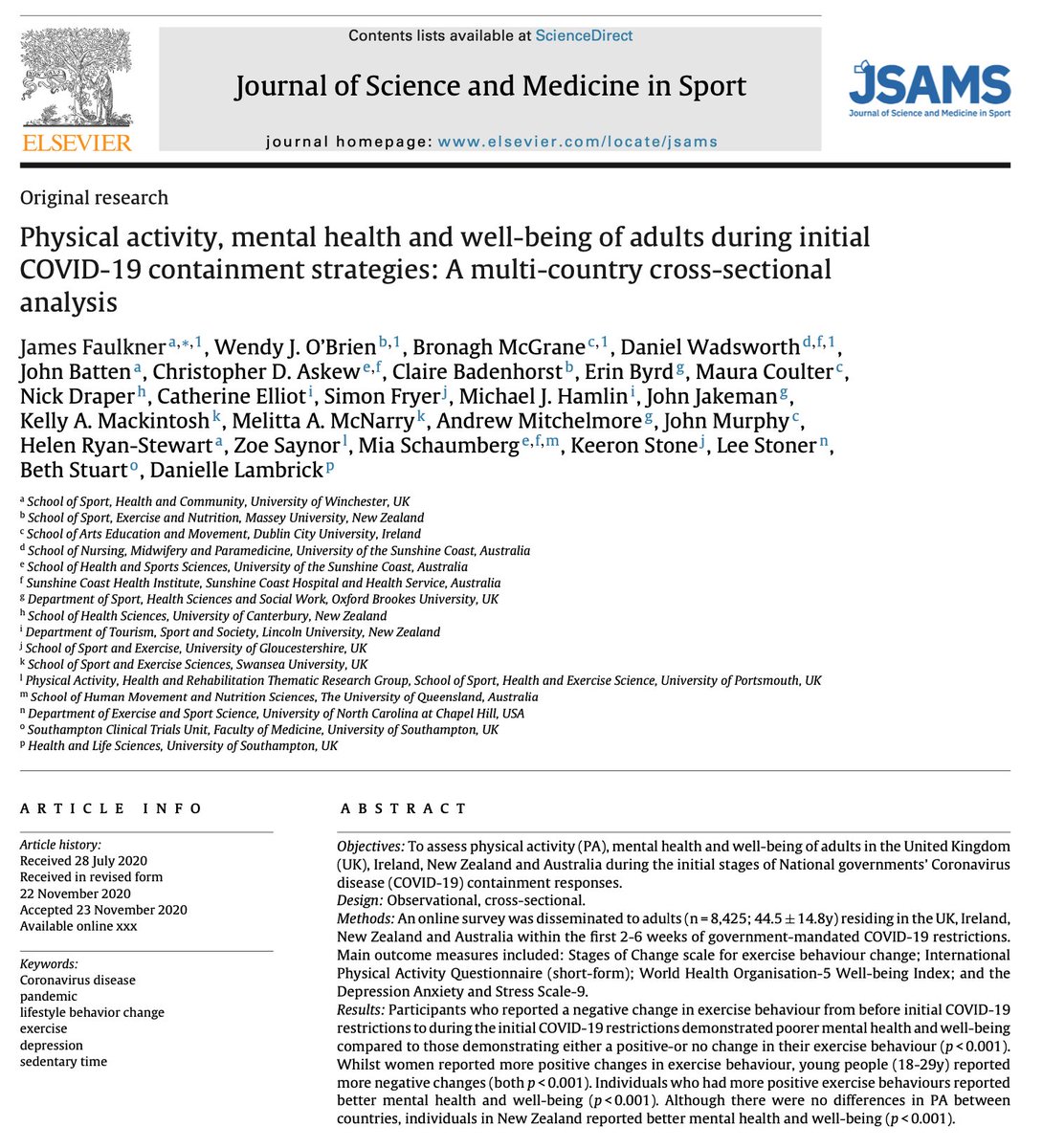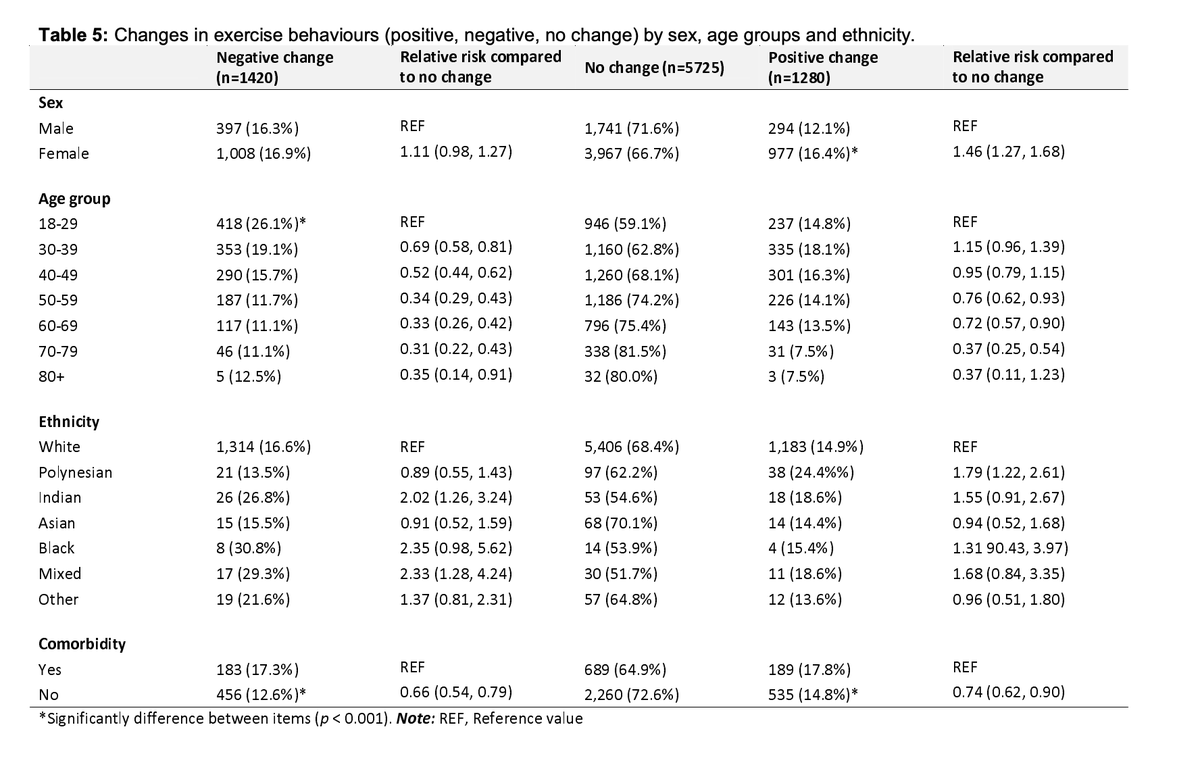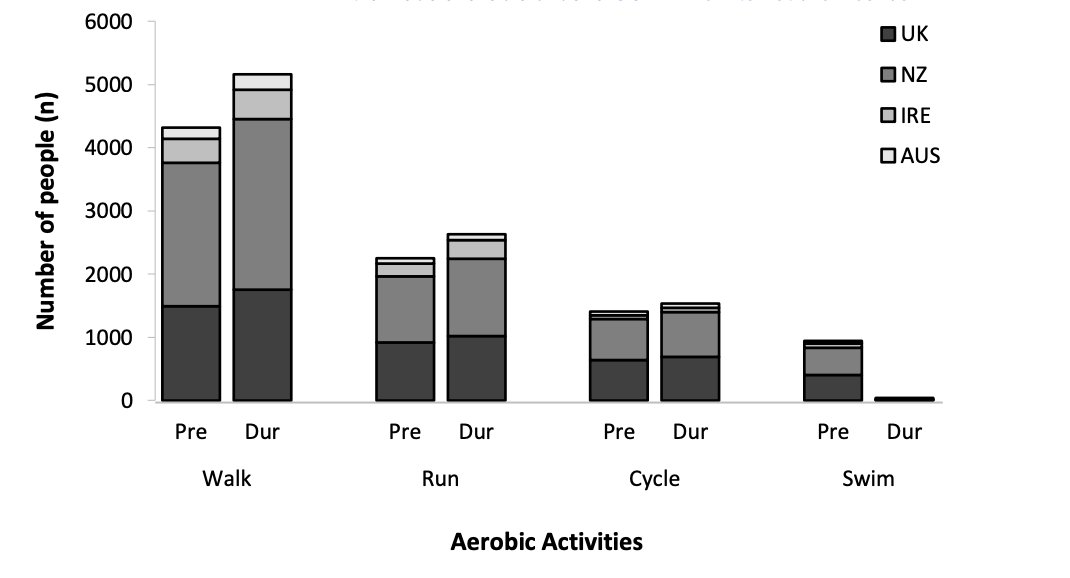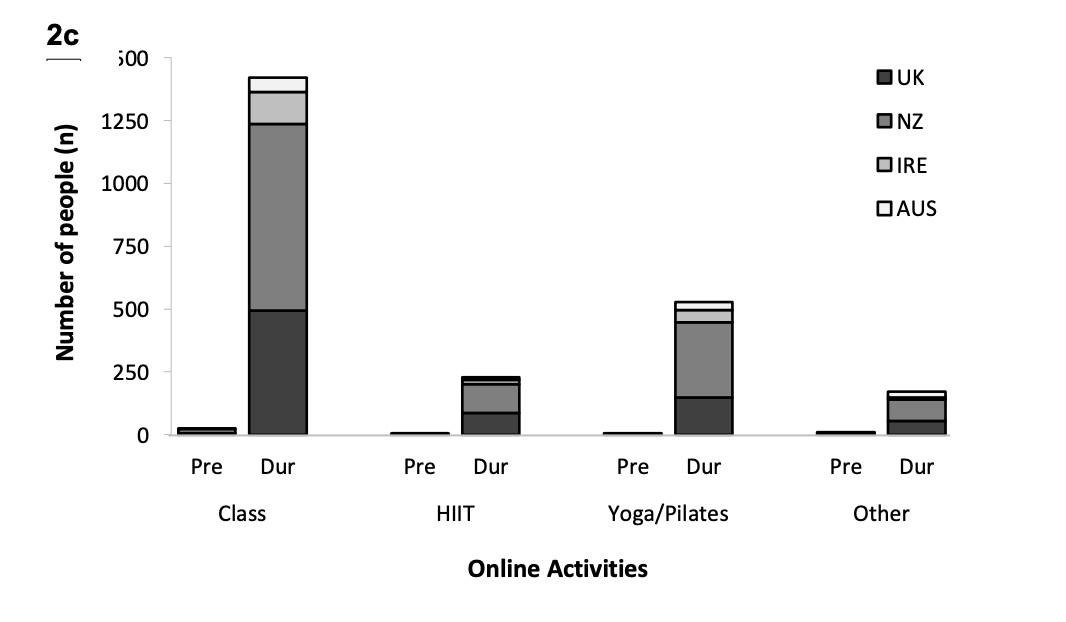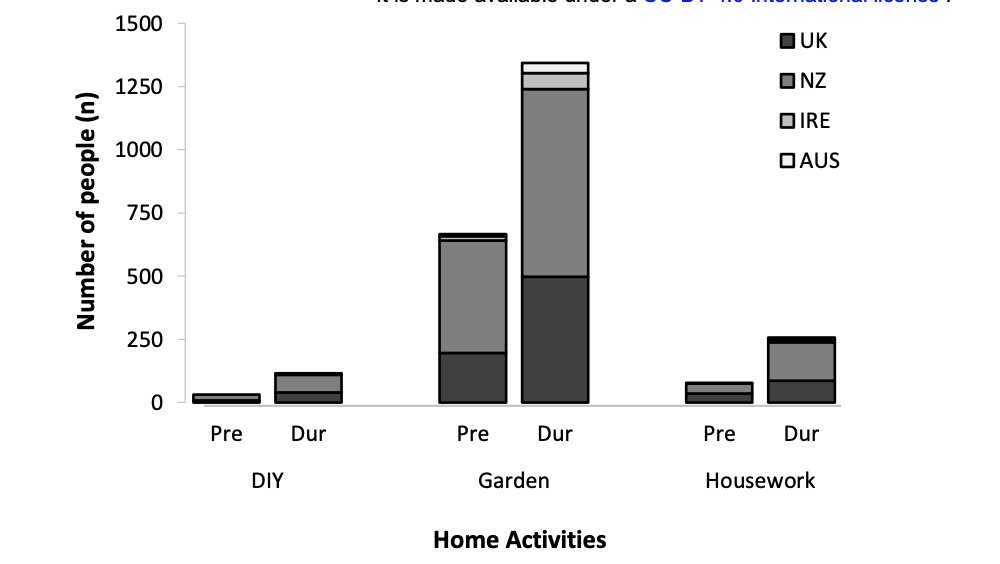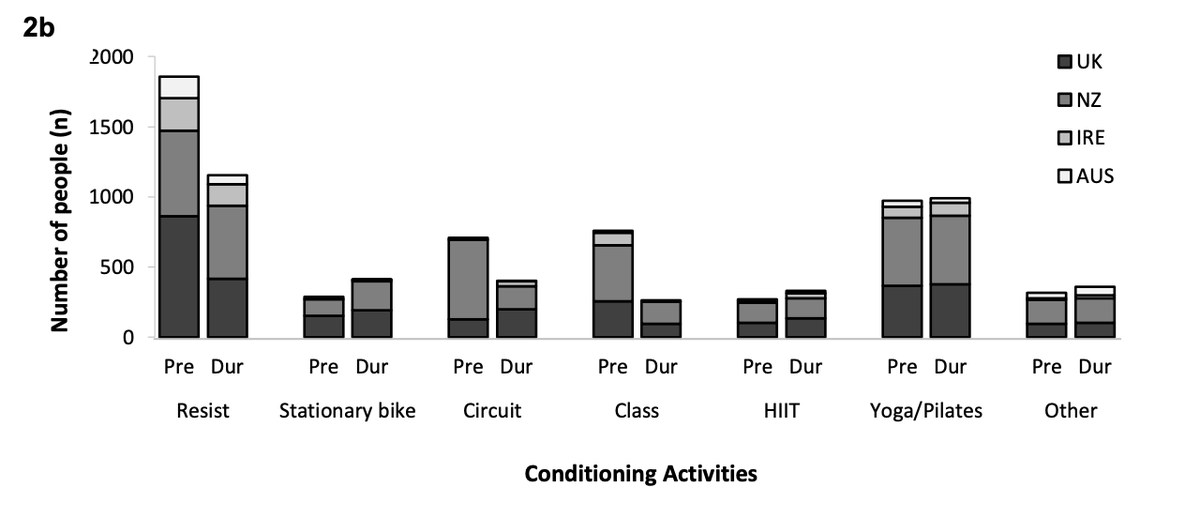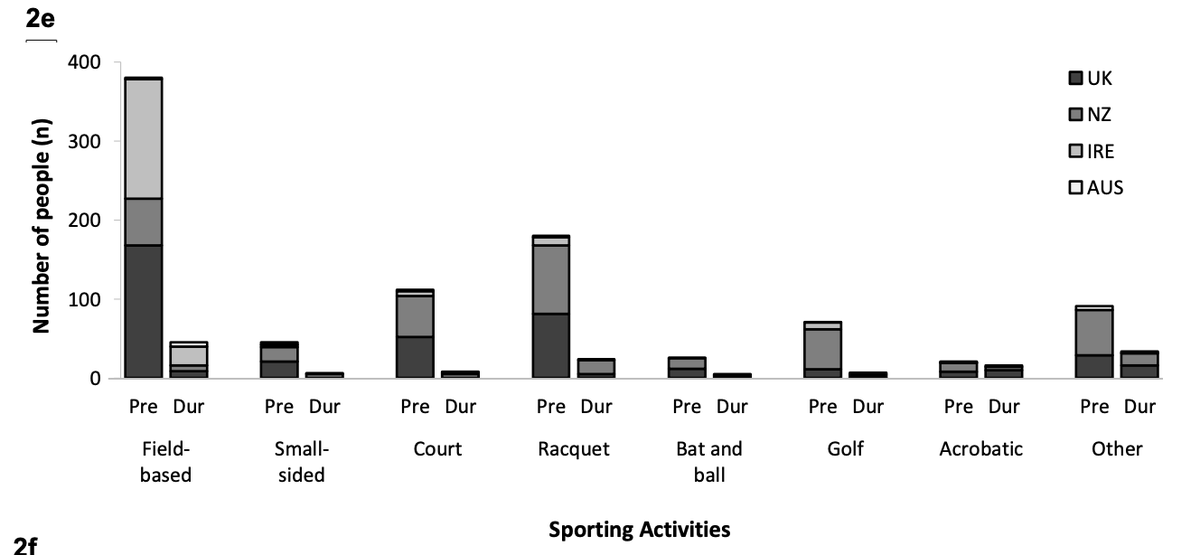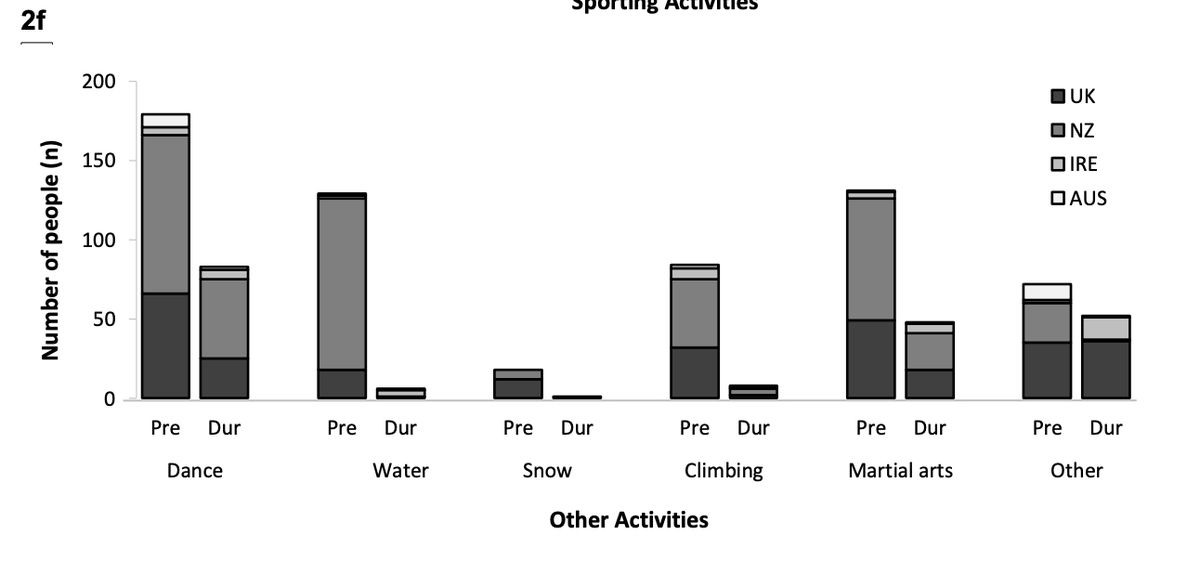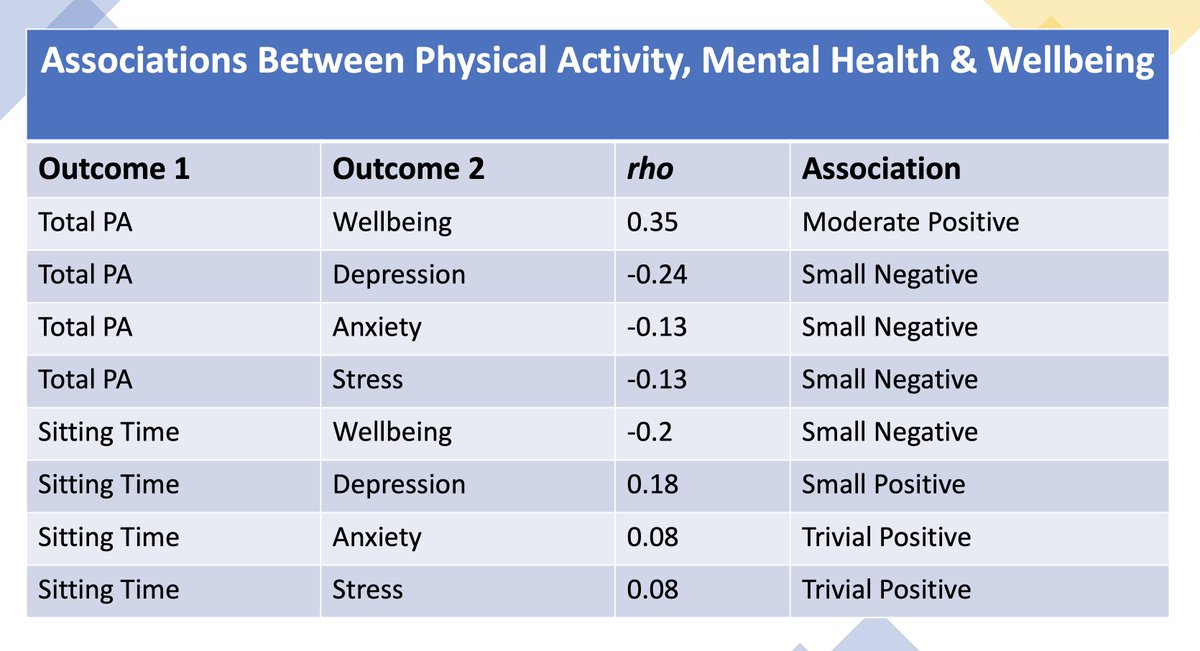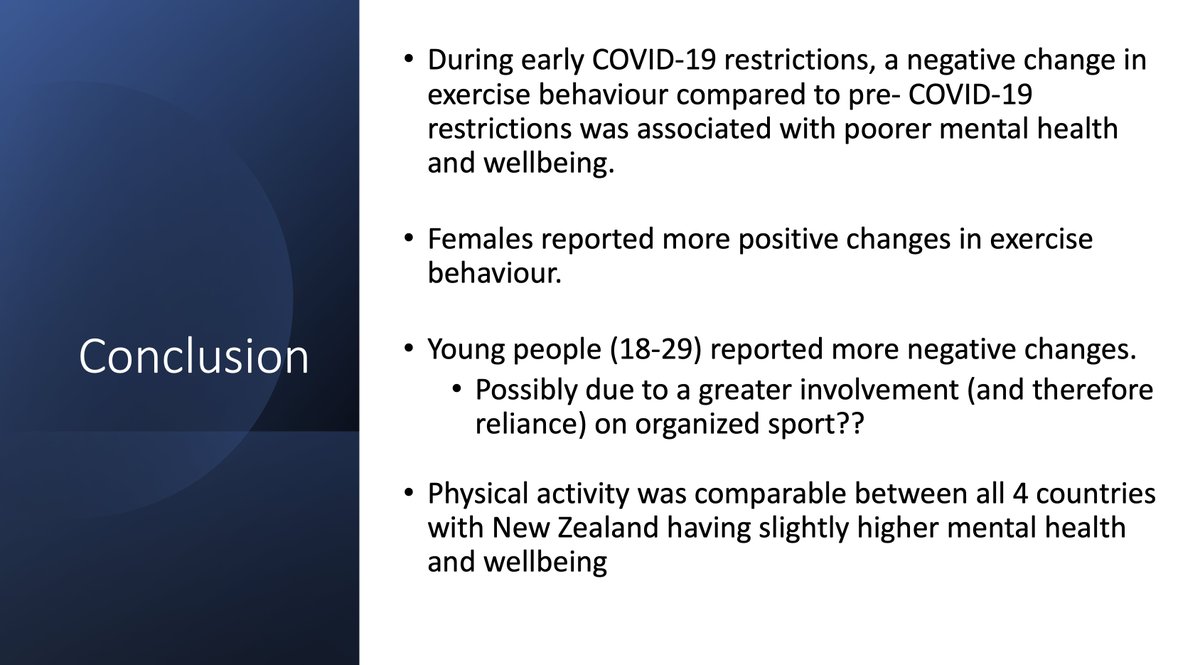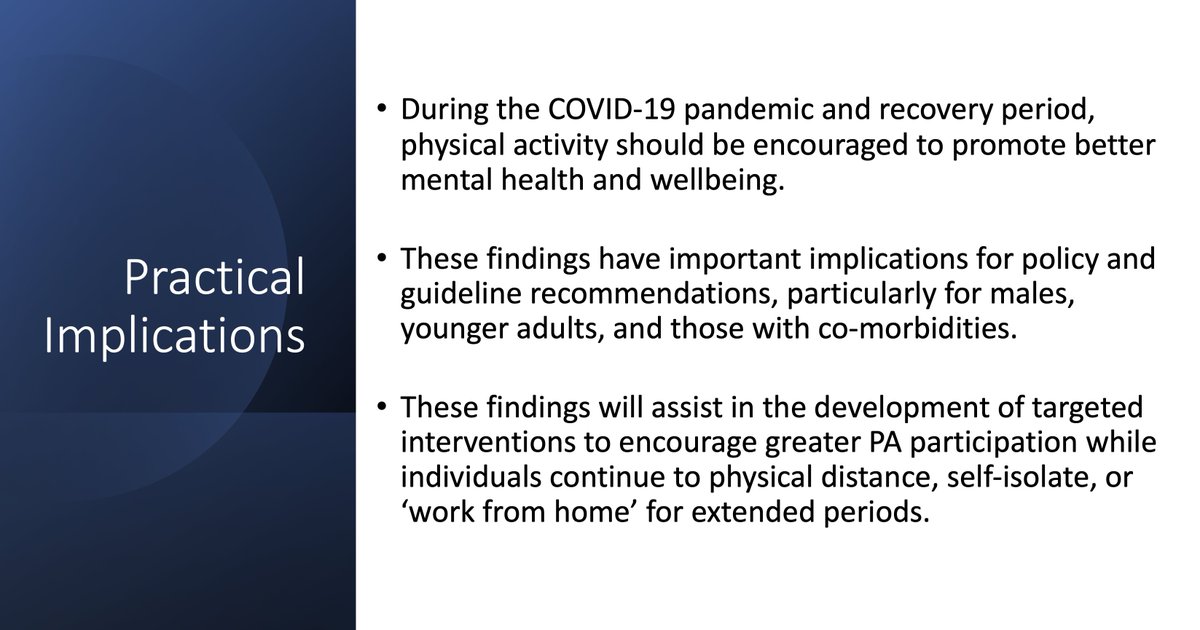New publication examining the physical activity levels, mental health and wellbeing of adults during Phase 1 of the coronavirus restrictions in Ireland, UK, New Zealand and Australia. Pleasure to contribute to the Irish arm alongside @DrBMcGranePE @MauraColt
Some findings

Some findings


Just under 70% of Irish adults reported meeting physical activity guidelines before restrictions were introduced. More males reported meeting guidelines than females.
Worryingly, Ireland had slightly lower Wellbeing and significantly higher symptoms of Depression, Anxiety & Stress during the first wave of restrictions.
65% of Irish people reported no change in exercise behaviours once restrictions were introduced. 17% reported a positive change (more free time or greater awareness?) while 18% reported a negative change (access to facilities & reliance on sport?).
The 18-29 age group had the largest reduction in exercise. Again, this may be due to a greater reliance on organised sport and ‘prescribed’ exercise from coaches and trainers?
Positive changes were found in Aerobic Activities, Online Activities, Home Activities although reductions were found in swimming. Most likely due to reduced access to swimming pools.
Changes were mixed for Conditioning Activities. Resistance Training down (gyms closed and a major rush on purchasing gym equipment) along with classes and circuit training. Stationary Bike, HIIT and Yoga/Pilates are had slight increases.
Changes in exercise behaviour were found to have significant associations with a number of mental health outcomes, most notably wellbeing and depression.
Main conclusions outlined in the image. Decreased levels of PA associated with lower wellbeing and mental health. We may need to provide greater supports for people (especially younger) to be active if team sport isn’t an option. Important going forward for injuries/retirements

 Read on Twitter
Read on Twitter